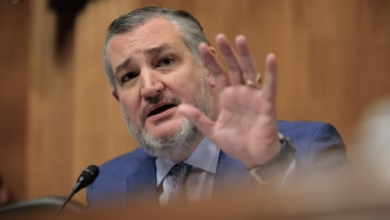California Takes New Steps to Regulate AI Giants

▼ Summary
– California Governor Gavin Newsom vetoed Senate Bill 1047, which would have required testing of large AI models for dangers, deeming it too rigid, and instead tasked AI researchers to propose an alternative governance plan.
– The resulting “California Report on Frontier Policy” recommends a new framework emphasizing transparency, independent scrutiny, and risk assessments for AI models, balancing innovation with safeguards against severe harms.
– The report highlights rapid advancements in AI capabilities and growing risks, including potential contributions to chemical, biological, radiological, and nuclear weapons threats.
– Authors advocate for third-party evaluations, whistleblower protections, and public information sharing to address systemic opacity in AI development, safety, and downstream impacts.
– Despite industry hesitancy, the report stresses the need for broad access to AI models for meaningful risk assessments, citing limitations in current evaluations and the importance of diverse, independent scrutiny.
California is taking bold steps to reshape AI governance with a new framework aimed at balancing innovation with critical safeguards. The state’s latest report, released this week, outlines a comprehensive approach to regulating powerful AI systems while addressing growing concerns about their potential risks. This comes months after Governor Gavin Newsom vetoed a previous AI regulation bill, opting instead for a more nuanced strategy developed by leading experts.
The 52-page policy document emphasizes the need for greater transparency and independent oversight of advanced AI models. Authored by prominent figures from Stanford, Carnegie Endowment, and UC Berkeley, the report highlights how rapidly evolving AI capabilities could transform key sectors like healthcare, finance, and transportation. However, it also warns that without proper controls, these systems might cause “severe and potentially irreversible harms.”
Since the initial draft in March, researchers have strengthened their recommendations, noting increased evidence that AI models could contribute to weapons development risks. The final version introduces more rigorous criteria for classifying companies subject to regulation, moving beyond simple computational thresholds. The authors argue that focusing solely on training costs misses crucial factors like real-world deployment risks and downstream impacts.
A central theme of the report is the critical role of third-party evaluators in assessing AI safety. Unlike internal or contracted teams, independent researchers offer diverse perspectives that better reflect affected communities. The document calls for whistleblower protections and safe harbor provisions to encourage rigorous testing without legal repercussions, a response to industry practices that often limit external scrutiny.
The challenges are significant. Even second-party evaluators like Metr, which works with OpenAI, have reported restricted access to model data, hindering thorough assessments. The report suggests companies might use restrictive terms of service to suppress unfavorable findings, underscoring the need for policy changes. Over 350 experts recently endorsed similar protections through an open letter cited in the document.
While supporting innovation, the authors stress that developer self-assessment alone is insufficient for understanding complex AI risks. They propose mandatory public disclosures about safety protocols and mitigation strategies, echoing calls from industry leaders like Anthropic’s CEO. The framework aims to establish California as a model for other states, avoiding a fragmented regulatory landscape while maintaining the state’s competitive edge in AI development.
The report acknowledges no policy can eliminate all risks but argues that real-world harm monitoring must evolve alongside AI adoption. By combining rigorous evaluation standards with protections for independent researchers, California’s approach could set a new benchmark for responsible AI development nationwide. As debates continue at the federal level, this state-led initiative demonstrates how proactive governance might shape the future of transformative technologies.
(Source: The Verge)






